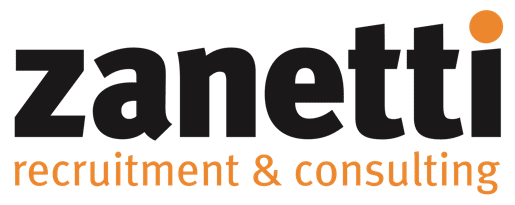We felt it appropriate to share some observations that could be of value. We have been hugely encouraged by conversations with our clients and the selfless behaviour of many in the community. There is a lot of good coming from difficulties if we look for it. The new world is interesting and uncertain. What is certain is that we will “come out the other side” and without being too philosophical, there will be much learning for the better!!
The narrative has clearly now moved from sensationalism and hysteria (taking advantage of the uncertainty) to greater understanding, acceptance and education of how to successfully navigate troubled waters.
Having worked closely with many clients over the last 5 weeks, the mood is considered but confident. Some delays in recruitment while others are still filling critical roles with all businesses progressively planning for the future. In summary, strong businesses are saying their strategy is responding to the current environment but still having the same focus/goal. Having personally reflected on experiences post 9/11 and the GFC, it seems most businesses have learnt a lot from history also.
- Keeping Powder Dry – Most businesses are very well placed to manage through this period of uncertainty. Many have restructured fees to lessen the impact during a market downturn. We get the sense they have strong balance sheets and are doing all they can to keep staff employed. We are still being engaged to fill critical roles. Others want to progress the candidate assessment process with a start date post June and yet others have pulled up the reigns. What is encouraging is their business strategy is unchanged, these businesses will re-engage to start the process again (just a matter of time). Most realise there is light at the end of the tunnel, and they need competent staff who understand their business and clients when market confidence emerges. We are not seeing a huge influx of candidates (unlike the GFC) but we are seeing quality staff coming outbound to us (a consequence of the current environment allowing them to reflect on what is important to them). Many of these staff will potentially leave their current employer due to the perception that they are not valued/appreciated. This discontent did not just happen in the last 5 weeks, it’s been an issue for some time but coming to a head with time to reflect.
- What is critical as a business owner is to stay close to staff, communicate regularly (one on one) and genuinely attempt understand what they are going through, what is important to them and be supportive. If you don’t, people will leave…. potentially those you want to retain. Reflecting back many years to a quote from the Baker from Beechworth (Tom O’Toole) when asked “what if you spend so much on training and development of staff and they leave” he responded, “What if I don’t and they stay!!”.
- Obvious vs Insidious – All businesses are supporting their staff to stay physically safe and adhere to the current government guidelines. If you were punched in the nose, chances are you might have 2 black eyes. This is visually obvious, and the pain is present. The emotional wellbeing of our team and community is under huge strain and mental illness can be insidious. This is the sleeper in the room. We never see it until it manifests in ways that can have a long-term impact for staff and your business. Support for people working remotely to maintain a positive focus and manage anxiety.
- Percentage of FUM Revenue Structure – These businesses have not yet seen an effect on the flow of revenue but will in the next quarter payments. They are preparing for this, the consequence on cashflow and possible impact on business structure. The downside risk consequence is evident in this model.
- Retaining Your Team – We are seeing similar strategies being adopted to what we saw post GFC. This includes measures such as reduced hours and staff salary reductions. This measure supports the need to manage reduced cashflow and a desire to retain all staff rather than letting some go. Correct messaging when implementing these measures is critical when communicating with staff.
- Business Scale – This has been a matter to address for longer than a decade. Micro financial planning firms are finding it hard to maintain profitability. This is primarily driven by the punitive nature of regulatory compliance and governance therefore creating an increased cost to serve clients. Strong licensing businesses find it difficult to maintain cost and deliver the important hygiene to protect clients, advisers and their license. This current event just highlights the problem further especially when dealing with middle Australia and low-income earners. Micro firms can succeed when they are mature, well structured, have a smaller number of HNW clients and a technical competence that meets this market.
- Cashflow is King – Having spoken with many businesses inside and outside of the financial services industry, financial services is far better placed than many. If you have not yet been negotiating with suppliers, you should be. It’s amazing how we have identified and eradicated what we thought was essential and found to be more discretionary in our business operation. We are also aware that deferral of expenses is only kicking the can down the road that has a far greater cost. We have been discerning and fair with suppliers attempting to manage a solution that works for everyone. The recovery will be long, and debt will be accrued for many. Attempt to gain the balance to avoid pain that will be chronic in future.
- Remote Operations – To quote a recent article, “while working from home was seen as a flexible arrangement or a ‘privilege’, it has fast become a necessity”. This is an opportunity to reflect on business structures and how we can operate in future. Not without disruption, we personally have learnt how to work more effectively remotely. The missing piece is human interaction, whether it be group or one on one. That face to face time where we can engage in a focused manner feeling the mood of the room, have a laugh, deliver messaging with passion and hold people accountable where necessary. Do we need all 500 sqm, is it time to be all open plan with meeting rooms, who has stepped up and demonstrated self-motivation or leadership in the face of uncertainty? This is a time to challenge traditional thinking and learn regarding our physical space and human engagement. Whilst we are potentially developing skills on leading teams remotely, the attached article may be helpful.
- It’s Amazing how Uncertainty can Engage Clients – In the main, most businesses have experienced increased client engagement which offers the needed counsel during uncertainty. It’s obvious from our conversations that businesses are much better placed than after the GFC. What we are hearing:
- Proactive regular communication from advice businesses is seen as imperative to providing comfort and maintaining trust (varies from weekly to when updates are required) being delivered electronically both via email and video. Outbound phone and video calls with individual clients has supplemented responses to inbound calls.
- Importance of transparent portfolios but can be a double-edged sword
- The type of messaging being given is critical
- Depending on the profile of clients, the desire to invest new money is evident. It seems clients are engaged and seeking advice not just from their accountant but also financial planners on small business state and federal govt support. At the other end, as middle and lower income earners are stretched financially, much of the conversation is around accessing government entitlements and superannuation.
- Proactive regular communication from advice businesses is seen as imperative to providing comfort and maintaining trust (varies from weekly to when updates are required) being delivered electronically both via email and video. Outbound phone and video calls with individual clients has supplemented responses to inbound calls.
- Ongoing Client Education – This event looks different to the GFC because there are more factors at play creating uncertainty beyond markets (our health and fundamental way of life). Human behaviour responds to the salient and immediate threat far more than the obscure or distant e.g. climate change. Having reflected on the GFC environment, there were far more clients deeply unsettled by that event and responding poorly. Having spent a lot of time with adviser candidates being displaced back in 2008/9, there was a real problem with the messaging I heard.
- Many had educated their clients during the bull run to think that they (as in the adviser) were the reason their clients had received exceptional returns. “Mr & Mrs client, look at your portfolio, haven’t I done a great job” (this is the subtext, but you get what I’m saying). In most cases we know that returns came from being invested, not “alpha” the adviser had contributed. Therefore, when the market tanked, they invariably educated clients to believe that if they contributed to the gains, then they contributed to the losses!
- Client education has changed to what can be controlled (strategy, structure, asset allocation, portfolio construction methodology, the why and the consequences of different market conditions).
- There seems to be a calmness in client communication with their advisers during the current period. In the main, they are considerably more settled subsequent to this market downturn and uncertainty. Obviously, there are circumstances where clients are under serious cashflow strain influencing poor investment decisions driven by certain human behavioural traits.
- There is a When, not an If – The behaviour of the Australian (and world) governments and public will ultimately determine the timeline. The longer it takes for industry to commence engaging in commerce, therefore seeing re-employment driving confidence back in the market, will ultimately determine how long it takes to recover. The world will look different. We will be paying off debt for many years. We should strategise and prepare now. There will be opportunity. To quote Professor of Pathology – John Lee regarding the economic impact, “The moral debate is not lives vs money. It is lives vs lives. It will take months, perhaps years, if ever, before we can assess the wider implications of what we are doing. The damage to children’s education, the excess suicides, the increase in mental health problems, the taking away of resources from other health problems that we were dealing with effectively. Those who need medical help now but won’t seek it, or might not be offered it. And what about the effects on food production and global commerce, that will have unquantifiable consequences for people of all ages, perhaps especially in developing economies?”
Ben and I are here to support you however we can. This goes well beyond the recruitment piece. We are currently involved in consulting to businesses also. As our recruitment engagements have waned during this period, we have the time and skill to share our experiences, both personally and professionally. We have years of experience in business and are happy to “lend an ear”, even if this alone is helpful to you.
Keep Well





